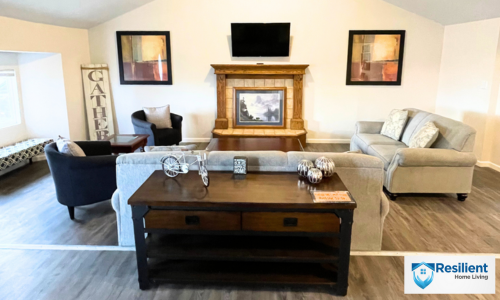
The Importance of Sober Living Homes: A Foundation for Recovery
Sober living homes play a crucial role in the recovery journey of individuals overcoming substance abuse. These homes provide a supportive environment that promotes healing, stability, and long-term sobriety. Unlike traditional treatment facilities, sober living homes offer a more independent living arrangement, allowing residents to gradually transition back into society while receiving the necessary support and guidance.
One of the key benefits of sober living homes is the sense of community they provide.
Residents live together in a supportive environment where they can share their experiences, struggles, and successes with others who understand what they are going through. This sense of community helps to reduce feelings of isolation and loneliness, which are common among individuals in recovery.
Another important aspect of sober living homes is the structure they provide. Residents are required to abide by certain rules and guidelines, such as attending support group meetings, participating in household chores, and abstaining from drugs and alcohol. This structure helps to instill a sense of discipline and responsibility, which are essential skills for maintaining sobriety in the long run.
In addition to providing a supportive environment and structure, sober living homes also offer a range of amenities to help residents feel comfortable and at home. These amenities may include fully furnished living spaces, access to laundry facilities, Wi-Fi, and recreational activities. By providing these amenities, sober living homes create a sense of normalcy and routine in the lives of residents, helping them to focus on their recovery journey.
One of the key components of successful recovery is having a strong support system in place.
Sober living homes help residents build this support system by connecting them with peers who are also committed to sobriety. Residents form friendships and bonds that can last a lifetime, providing them with a network of support long after they leave the sober living home.
In the 1970s, as addiction treatment shifted from state institutions to community-based care, the need for housing for those in recovery was addressed by the SLH movement in California.
Sober living homes were started by individuals in recovery who wanted to bridge the gap between intensive, early recovery and sustainable, long-term recovery.
These homes developed in response to policies that viewed addiction as short-term and neglected housing challenges for early recovery stages. Today, SLHs are an integral part of the continuum of care for addiction treatment, offering a supportive environment where individuals can rebuild their lives and establish a foundation for lasting sobriety.
Overall, sober living homes play a crucial role in the recovery process by providing a supportive environment, structure, and community for individuals overcoming substance abuse.
If you or a loved one is in need of housing for addiction recovery, consider the benefits of sober living homes like Resilient Home Living.
Contact us at (316) 749-8029 or email contact@resilienthomeliving.com to learn about our program and how we can support your sobriety journey.
